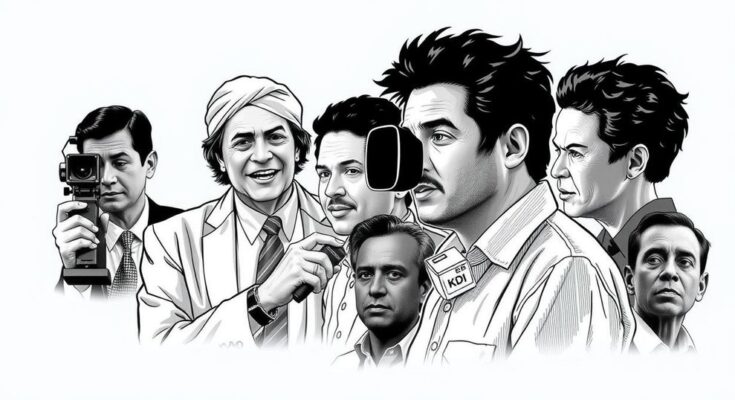Nicaragua is set to amend its constitution to expand state control over media and consolidate presidential power. These reforms align with authoritarian practices observed in Cuba and Venezuela, raising concerns about the suppression of free speech and the plight of independent journalism. Analysts warn such changes could herald a significant decline in fundamental freedoms.
In January, Nicaragua is poised to finalize constitutional reforms that would empower the state to regulate media more stringently, mimicking practices found in other authoritarian regimes such as Cuba and Venezuela. This reform, advocated by President Daniel Ortega, would enable the government to classify information as “false news” and expand its oversight of media platforms to shield them from foreign influence. Such measures are indicative of a broader trend of increasing governmental control over free speech and independent journalism in the Americas, as explained by Carlos Jornet, president of the Inter American Association for press freedom.
The anticipated changes will also modify presidential term lengths and bolster the role of the vice president, thereby consolidating Ortega’s rule and enhancing the police and military’s power, solidifying the regime’s grip on Nicaragua. Recent actions have already forced many journalists into exile, while the government continues to detain individuals who oppose Ortega, some of whom are reported to have endured torture. International human rights organizations express grave concerns that the proposed reforms would legalize and entrench Ortega’s “absolute power”. Julián Porras, the Nicaraguan legislature’s head, dismissed these concerns as trivial opposition.
Lucia Pineda Ubau, a prominent journalist living in exile, cautioned that the new constitutional changes would further risk the independent press. Venezuela and Cuba serve as cautionary examples, where similar laws have been employed to suppress dissent and create a “news desert.” United Nations officials have warned that the constitutional amendments represent not merely a shift in legalities, but a potential “death knell” for fundamental freedoms and the rule of law in Nicaragua.
The proposed reforms in Nicaragua come at a time when authoritarianism is on the rise globally, particularly in Latin America. Governments have increasingly sought to regulate and control media to suppress dissent and ensure a monopoly on information. The reforms are aligned with previous efforts by regimes in Cuba and Venezuela to stifle free speech and manipulate public perception. This context underlines the challenges faced by journalists in authoritarian states, who must navigate a landscape fraught with legal and physical danger. Thus, analysis of the situation in Nicaragua is crucial for understanding broader trends in government censorship and human rights violations throughout the region.
The impending constitutional reforms in Nicaragua symbolize a dangerous shift towards increased authoritarianism, mirroring strategies used by other oppressive regimes in the region. With President Ortega’s government poised to tighten its grip on media and limit freedom of expression, the future of independent journalism in Nicaragua hangs in the balance. Observers emphasize that these changes are not merely legal adjustments but steps towards eradicating fundamental freedoms, posing significant risks for journalists and the public’s right to information.
Original Source: www.voanews.com




